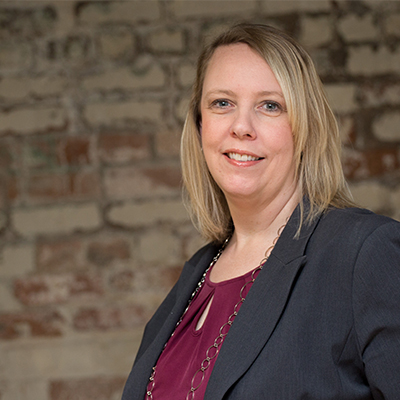EXPERTS WEIGH IN ON CURRENT JOB MARKET TRENDS
January 11, 2021
Source: Zippia
Given the change, of course, that has happened in the world, we wanted to provide expert opinions on what aspiring graduates can do to start off their careers in an uncertain economic climate. We wanted to know what skills will be more important, where the economy is doing relatively well, and if there will be any lasting effects on the job market.
Companies are looking for candidates that can handle the new responsibilities of the job market. Recent graduates actually have an advantage because they are comfortable using newer technologies and have been communicating virtually their whole lives. They can take what they've learned and apply it immediately.
We spoke to professors and experts from several universities and companies to get their opinions on where the job market for recent graduates is heading, as well as how young graduates entering the industry can be adequately prepared. Here are their thoughts.
Our Panel of Experts

University at Buffalo – The State University of New York

Western Kentucky University

University of Mount Union

Bates College

Mercer University

Goodwill of Western Missouri & Eastern Kansas

Southern Illinois University Edwardsville

Goodwill Industries of Michiana

University of Indianapolis

University of Kentucky
Middlebury College

KORYDON SMITH
Professor and ChairUniversity at Buffalo – The State University of New York
Department of Architecture
WebsiteIn your opinion, what are the biggest trends we'll see in the job market given the pandemic?
Korydon Smith: It appears that jobs across all sectors will grow, though likely on a slow pace. Not only will jobs and interest in the health-sciences grow, but I project that we will see all disciplines and employment areas incorporating health-related issues.
What skills stand out on resumes?
Korydon Smith: Fundamental skills continue to be important - written and verbal communication, core competency in the sector to which one is applying, organizational skills, creative and critical thinking, etc.
Are there any particularly good places in the United States for graduates to find work opportunities in this field after they graduate?
Korydon Smith: Jobs tend to occur where populations are growing. Presumably, this will continue, but with the added prospect that some jobs/employers might not require people to relocate.

DR. ANGELA JONES PH.D.
Associate Professor and Coordinator, Internship ProgramWestern Kentucky University
English Department
WebsiteWill there be an enduring impact of the coronavirus pandemic on graduates?
Dr. Angela Jones Ph.D.: I think it's too soon to tell the long-term impact. Fortunately, our graduates from the Professional Writing program have continued to be successful in landing both traditional, on-site jobs and remote positions, including some that would not previously have been available as remote work.
In addition, all students' recent experiences taking online and hybrid courses have been helpful to expand their technological expertise. The ability to select appropriate technological tools and deploy them effectively will be helpful in any positions they land.
What type of skills will young graduates need when they enter the workforce in the coming years?
Dr. Angela Jones Ph.D.: These three skills will only increase in importance: identifying and solving problems efficiently, communicating effectively in multiple genres, and using technology strategically and thoughtfully. Within the communicating skill, of course, comes basic writing skills: being able to write in a style that is clear, concise, and appropriate for specific readers.
In addition, graduates should be comfortable both giving and receiving feedback on written texts, in multiple ways (e.g., comment and track changes features in Word, simultaneously working in a Google Doc, sharing screens in Zoom calls). Collaborating on written products when we are working asychronously or in remote locations will require graduates to apply their constructive criticism skills in new ways.
GREGG COURTAD
Professor of SpanishUniversity of Mount Union
World Languages and Cultures
In your opinion, what are the biggest trends we'll see in the job market given the pandemic?
Gregg Courtad: I anticipate a wave of new restaurants to replace those that were forced to close during the pandemic. I don't think that eat-in dining will become a thing of the past.
What general advice would you give to a graduate beginning their career?
Gregg Courtad: Over the past several decades it has become the trend to move from job to job. You owe it to yourself to remain as competitive as possible throughout all stages of your career.

Will there be an enduring impact of the coronavirus pandemic on graduates?
Francesco Duina Ph.D.: The job market has changed significantly since the pandemic. In many cases, what is considered 'valuable' in terms of services and products has shifted significantly. Some industries are obviously struggling (tourism and travel, for instance) and may never be the same; others are expanding and growing (online fitness programs, for instance, or the real estate market in rural areas). This means that new sociology graduates are facing a new sort of job market and will need to think both where they wish to be as well as where the most demand for their skills will be.
What type of skills will young graduates need when they enter the workforce in the coming years?
Francesco Duina Ph.D.: Sociology graduates enter the workforce with a fantastic set of skills that range from the analytical and research ones to the more conceptual ones (i.e., their appreciation for the 'social' in everything we do, for networks, for social connections, etc.). I think that those things will continue to be in high demand. But it is likely that they will be so in a world that is more IT-oriented and where more of everything happens remotely. So, adapting to more decentralized, inter-connected workplaces and business realities will be essential. This will still require some new flexibility and the ability to re-imagine how sociological skills can be helpful in this new environment.
What experience really stands out on resumes?
Francesco Duina Ph.D.: I would imagine that internships, involvement with local or broader communities, direct involvement with research projects, and having been exposed to different environments (by way of travel, study abroad, etc.) will continue to prove valuable and markets of differentiation.

In your opinion, what are the biggest trends we'll see in the job market given the pandemic?
Dr. Olivia Boggs: Public schools are hiring!! The job prospect for college graduates intent on becoming teachers or principals is very good right now, in spite of the pandemic and in many cases, because of it. The need for qualified educators and principals has grown during the COVID-19 pandemic as parents clamor for in-person classroom instruction while record numbers of teachers refused to return to what they view as unsafe classrooms. As vaccines are being distributed and schools begin to return to normal practice, candidates who are hired now will be positioned to remain.
What skills stand out on resumes?
Dr. Olivia Boggs: The most highly prized skills that make a teacher candidate's resume stand out are (1) having a major in a STEM field, Special Education, or English as a Second Language (ESOL), and (2) being adept at online instruction.
Are there any particularly good places in the United States for graduates to find work opportunities in this field after they graduate?
Dr. Olivia Boggs: There is a particularly critical need for teachers and administrators in rural and inner city schools.

Will there be an enduring impact of the coronavirus pandemic on graduates?
Laura Ritterbush: The pandemic will have a long-term impact since the way we conduct business has changed significantly. We anticipate a greater use of technology to connect and provide our services. We also expect a lag in the recovery of jobs, possibly lasting for at least the next couple of years.
What type of skills will young graduates need when they enter the workforce in the coming years?
Laura Ritterbush: The ability to be agile and shift when needs change will be essential. Graduates need to ensure they've had experience in the workplace to give them equal footing with people who are also in the job market with more work history.
What experience really stands out on resumes?
Laura Ritterbush: Practical experience in your desired field is most important. Even experience as a volunteer or intern will show prospective employers that you've done the work before and had success.

NANCY HUYCK
Associate Professor, Department ChairSouthern Illinois University Edwardsville
Public Administration and Policy Analysis Department
WebsiteWill there be an enduring impact of the coronavirus pandemic on graduates?
Nancy Huyck: Recent economic consequences of the pandemic have produced fewer opportunities in state and local public employment. The coronavirus pandemic has created unprecedented challenges for government that will be felt for generations to come. Graduates pursuing public sector employment must be mindful of the heroic duty that government must face to ensure efficient and effective service delivery, amidst a pandemic. Public health, social services and digital technology will command sizeable job growth for the foreseeable future.
What type of skills will young graduates need when they enter the workforce in the coming years?
Nancy Huyck: The demand on government for efficient and effective employees is greater than ever before. As highlighted by the COVID-19 pandemic, the policies and practices which federal, state and local government enact and deliver are glaringly significant. Graduates of the field embarking upon public employment and service must be prepared to contribute a proficient knowledge base and skill set that are both versatile and distinct. Organizations will challenge public administrators to accomplish complex tasks to serve a diverse citizenry and a multifaceted portfolio will maximize hiring potential. Graduates must demonstrate the ability to be flexible and adapt to the needs of their employers. Employers are seeking effective communicators who will work independently to solve problems and provide solutions. Emphasizing the capacity to work both independently and in team-oriented settings with minimal oversight is also appealing to employers.
What experience really stands out on resumes?
Nancy Huyck: The ability to demonstrate practical, applied experience in the workforce as often provided by an internship is a beneficial component to any resume. Public sector organizations and NGO's value and appreciate the knowledge, skills and abilities that both paid and non-paid internships provide to both full and part-time job seekers. Internships by nature are competitive to secure and therefore often highlight unique individualized talents. The persistence to pursue and complete an internship offers support that the applicant is decisive in their career aspirations and, if afforded the appropriate opportunity, may prove an asset to the organization.

GUY FISHER
Vice President of Mission AdvancementGoodwill Industries of Michiana
In your opinion, what are the biggest trends we'll see in the job market given the pandemic?
Guy Fisher:
I believe that healthcare, pharmaceutical, manufacturing, and information technology will provide great college graduates opportunities. The support service industry will also experience growth.
If a graduate needs to take a gap year, what skills would you recommend they try to enhance and how should they go about doing it?
Guy Fisher: Place yourself in volunteer opportunities or work environments where you can develop collaboration skills. Working in teams and developing servant leadership will be extremely appealing to future employers.
What general advice would you give to a graduate beginning their career?
Guy Fisher: Be flexible and willing to stretch yourself. Embrace a life-long learning mindset. But most of all, develop your people skills. Learning how to work with others is an essential skill of all.

EDUARD ARRIAGA PH.D.
Assistant ProfessorUniversity of Indianapolis
Department of Global Languages and Cross-Cultural Studies
Are there any particularly good places in the United States for graduates to find work opportunities in this field after they graduate?
Eduard Arriaga Ph.D.: With the many changes we have experienced in the last couple of years with COVID, social disparities, environmental crisis, and the ubiquity of digital technology, young graduates will require skills such as
- creativity and innovation to think new ways to interact with the many stakeholders that are part of our communities here in the United States and abroad;
- critical thinking skills so recent graduates can understand that our societies, cultures, and traditions are part of a historical continuum they need to take into account when making decisions or to face work-related needs;
- problem-solving will allow graduates to use their experience and those of their coworkers to find solutions to pressing issues looking at places and connections they have not thought of before;
Communication is also vital so graduates can interact in a meaningful way with coworkers, supervisors, and the general public.
This skill will be enhanced if they can use several codes and languages to communicate and understand the cultural diversities that constitute our world; 5) collaboration is another skill young graduates should acquire and use. Now more than ever, we realize we are connected. Only through collaborative efforts, we can achieve great goals; 6) finally, if they do not want to be simple consumers that do not think when using ubiquitous digital media, they need to acquire media literacy skills that allow them to gather, curate, and interpret information more responsibly and accurately. This is crucial at this point in our social and political realities.
How do you envision technology impacting this field in the next 5 years?
Eduard Arriaga Ph.D.: We don't have to wait five or three years to see the impact of technology in these fields. We are currently living in 2020, which has allowed us to understand that technology was here and has been here for a long time, changing the way we research, teach, communicate, and work. However, in five years, AI, algorithmic cultures, and other programmed technologies will continue to change how young graduates will use their skills and credentials. That is why new graduates start acquiring skills related to digital media and media literacy.

REBECCAH DAWSON PH.D.
Assistant Professor of German studiesUniversity of Kentucky
German Language
WebsiteWhat general advice would you give to a graduate beginning their career?
Rebeccah Dawson Ph.D.: Students graduating with a degree in German Studies have a distinct advantage in the job market. Not only can they communicate in a different language and a different culture, but they have also trained their minds to think critically in any work environment. Courses in German Studies are not *just* about learning a language - you learn how to think and question the world around you, to make correct decisions independently. Just because someone majors in German does not necessarily mean job prospects are limited to the German-speaking world, though those are often the desired route to take! The ability to think critically and creatively allows for an advantageous perspective in any post-graduate career. My advice is to harness those skills, and you'll be a top candidate in any field.
What technology do you think will become more important and prevalent in the field in the next 3-5 years?
Rebeccah Dawson Ph.D.: Technological use in foreign language instruction continues to advance, especially in light of the COVID pandemic. While teaching and learning remotely do pose its own set of challenges, the advantage that German Studies, and foreign language study in general, has is the ability to connect virtually to an entirely different culture and language. With virtual classrooms, like Zoom, students can connect and have real-life interaction with native speakers, which only enhances the learning experience and begins to eliminate cross-cultural borders. In German classes in the UK, we had already integrated social media, such as Blogs, Instagram, Facebook, and Twitter, into the fabric of our courses. Now, we are doing the same in integrating Zoom meetings, not only with our students but across countries as well. Online translators, which continue to be heavily used, can only do so much. They are not yet at the stage where they can do the same thing as learning the language and culture in terms of interpersonal communication. Using technology, however, to facilitate cross-cultural understanding is critical and will continue to be an essential aspect in the field.
Will there be an enduring impact of the coronavirus pandemic on graduates?
Rebeccah Dawson Ph.D.: I believe there will be an impact on these graduates. The group entering into the job market right now has experienced something no other graduates have. They have resiliently managed to uproot their lives to spend the remainder of their collegiate career away from campus (and all of which that entails). They have learned and adapted to the new environment of online learning. The challenge I set for my students was not only met but, in most cases, exceeded expectations. I was continually impressed by how resilient my students were. The ability to adapt, change, and succeed, combined with the critical thinking skills inherent to a foreign language major, creates a new skillset, unique to this group of graduates. They will be the leaders in this "new normal," as it has been dubbed by so many.
BETTINA MATTHIAS PH.D.
Professor of German and Maurice R. Greenberg Professor of Language and Linguistics Director, German Summer Language SchoolMiddlebury College
Department of German
WebsiteWill there be an enduring impact of the coronavirus pandemic on graduates?
Bettina Matthias Ph.D.: Many of our students traditionally go into finance; jobs there might be a little harder to get in the coming months, but I don't think that will be a permanent problem. I believe that pandemic impacts some of our students' outlook on career choices. Some seem to be realigning their goals with more critical questions about their lives and our society. This is a preliminary finding, though. Those who want to go into the teaching profession will likely find work without too much trouble. However, our work in the classroom will look different, at least for the foreseeable future, with more "socially distant" engagements and an intensive search for technological solutions to make up for the missing direct engagement.
Are there any particularly good places in the United States for graduates to find work opportunities in this field after they graduate?
Bettina Matthias Ph.D.: Many students move to Boston and New York to find work in the finance and consulting sector (German is still a perfect language for those careers), which will likely not change too much, though telecommuting and home-office jobs might become more prevalent. For teaching, there are jobs across the country right now. Those students who double-major in German and Environmental Studies often go to states with green economies and energy sector(s).
But there is no one-size-fits-all answer. German is a major that most students do in conjunction with another major; their career paths are thus very varied, and some of those will be more prone to pandemic-related repercussions than others.
How do you envision technology impacting this field in the next 5 years?
Bettina Matthias Ph.D.: Our students go into so many different fields that this question is hard to answer. My area (teaching in higher ed) will undoubtedly change a lot in terms of technology. We will likely offer more courses online, enrich our in-person classes with ever-evolving new educational technology, and engage in new research approaches. As long as these changes increase accessibility and do not water down the quality of core learning ideals and our philosophy, we will embrace it.
Students who go into business/finance etc. might live in less expensive and crowded areas if the "home office" becomes permanent.

